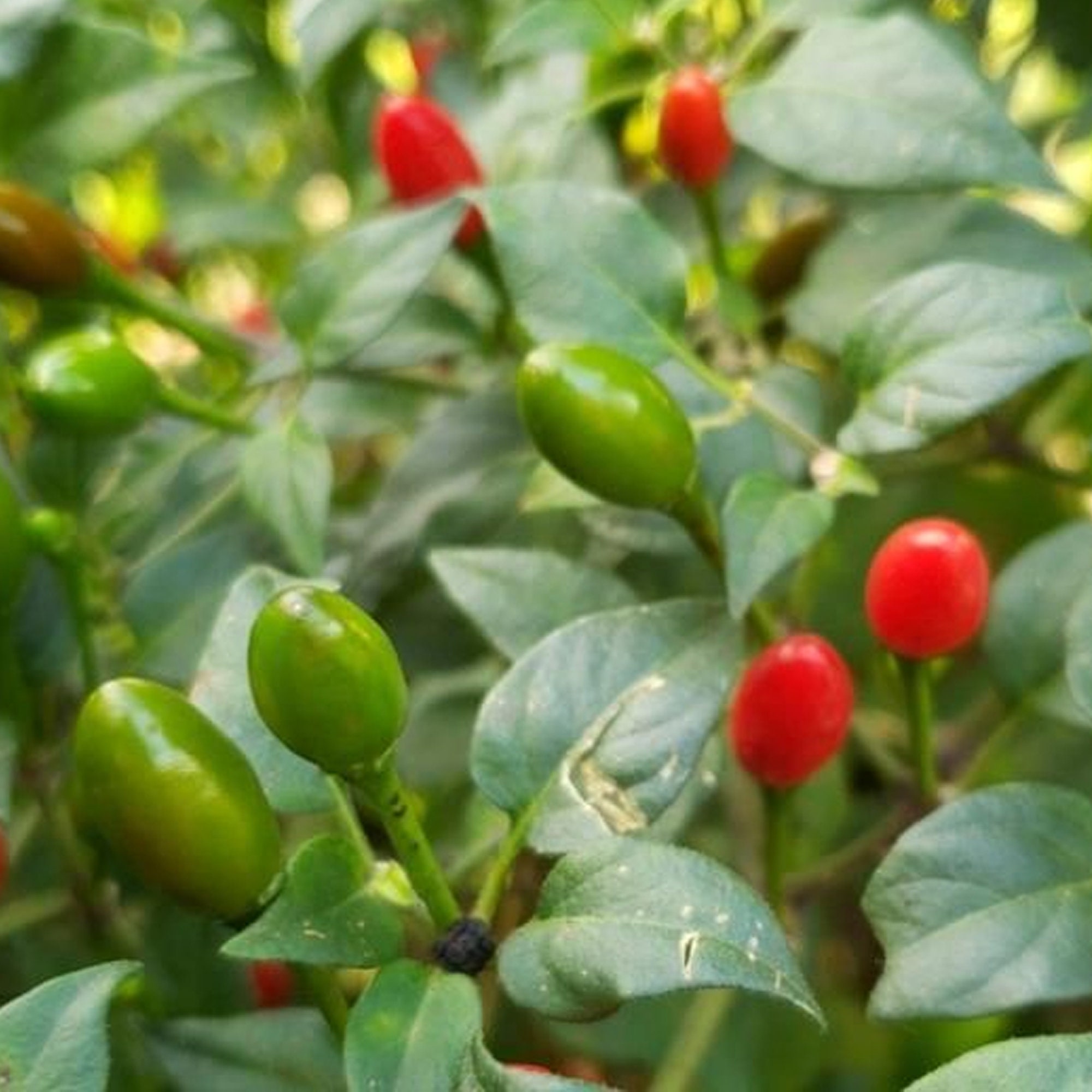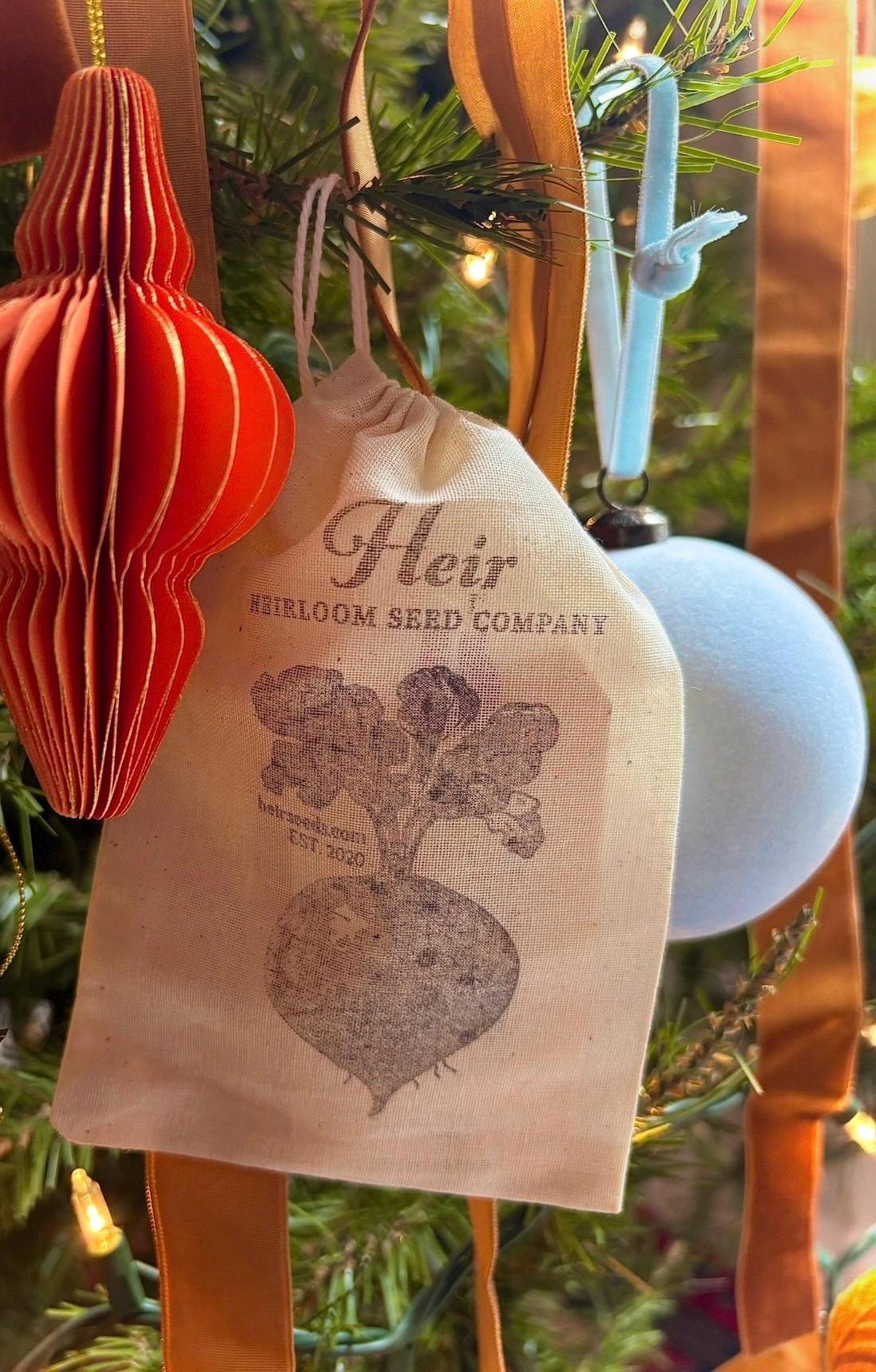Chiltepin Hot Pepper - Heirloom 15 seeds
$3.48
Easily underestimated, this tiny, pea-shaped red pepper is one of the worldÔÇÖs hottest! Native to Mexico and the Southwest, compact, 10-in. plants yield a bounty of 1/2-in., round, red-hot peppers. Looking more like a small round berry than a chile, the Chiltepin ÔÇô pronounced ÔÇťchill tuh peenÔÇŁ ÔÇô is one of the oldest of the very few remaining wild chiles still available. Considered by many to be the mother of all chiles, it is the only indigenous pepper to the U.S., still growing on shrubs under nurse plants in canyons throughout southern Arizona, New Mexico, Texas, and northern Mexico.
Its name comes from the Aztec Nahuatl language ÔÇô spoken when Cort├ęs arrived and still used today by approximately 1 ┬Ż million people in Mexico ÔÇô of chiltecpin, ÔÇťchilliÔÇŁ + ÔÇťtecpintlÔÇŁ, meaning ÔÇťflea chileÔÇŁ. The pea-sized scarlet berries are an irresistible snack to the wild birds who are credited with their spread from South America all the way up to the southern U.S. and why they are also known as ÔÇťbird peppersÔÇŁ in the Southwest.
On first taste, the heat is intense and unapologetic, coming on fast and strong ÔÇô the flavor introduces itself later. The heat quickly passes, leaving you with a fruity, mineral flavor described as ÔÇťthe lingering taste of the thirsty desert earth itself,ÔÇŁ by Dr. Gary Nabhan in his Chasing Chiles book.
The fruit are usually the size of a pea and ripen from green through orange-red to full deep scarlet red when mature. They are erect, growing on top of the stem, above bright green pointed leaves on short bushy shrubs in protected areas. Fruit production is prolific; one bush can yield up to a hundred tiny flavor bombs. Perennial in their home environment of Central America and Mexico, they are usually annuals in most places in the U.S. except in very southern climates that donÔÇÖt freeze.
In the wild, Chiltepins need more moisture and shade than the Sonoran desert provides, so they grow under nurse plantsÔÇövegetation that gives shade and shelter where moisture gather and seeds can germinate. Mesquite, ironwood, and hackberry are the most common nurse plants in the wild.
90 days.
Grown in Tennessee.
Planting Guide included. Ships in padded envelope.
Visit heirseeds.com to view our full inventory of rare heirloom seeds.
Reviews (4)
Average:
Aug 30, 2023
Jul 18, 2023
Feb 10, 2021
Package arrived quickly, but it could take as long as 6 months to know if they are the correct seeds or if they work.
Jan 16, 2021
have not tryed them yet



